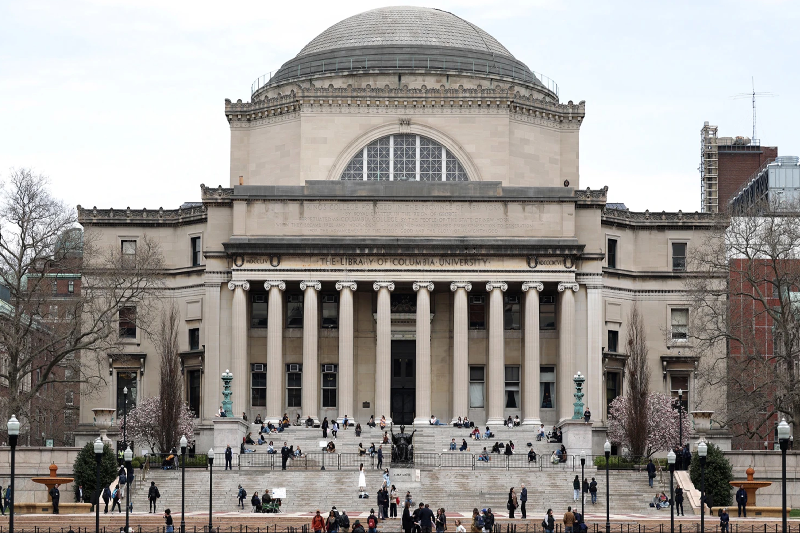
Columbia University Submits First Data Under $221 Million Title VI Settlement: A Step Toward Transparency and Reform
In a significant move toward compliance and transparency, Columbia University has officially submitted its first set of data to the U.S. Department of Education under the terms of a $221 million settlement agreement signed in July 2025. The agreement, which aims to restore nearly $400 million in suspended federal funding, was initiated after the university was found in violation of Title VI regulations. This milestone marks the beginning of Columbia’s efforts to rebuild trust, enhance accountability, and ensure federal compliance in admissions and campus governance.
Meeting Compliance Deadlines
According to Columbia Spectator, the university met two key October deadlines outlined in the July 23 settlement. These included the submission of detailed admissions data and the initiation of compliance-based reporting procedures. The federal agreement requires Columbia to release public semi-annual progress reports, maintain transparent admissions records, and establish training programs to reinforce campus norms and values related to diversity and nondiscrimination.
The university confirmed that it had provided the Department of Education with an “initial set of information,” fulfilling its first major compliance milestone. This submission reflects Columbia’s commitment to adhering to federal guidelines while restoring its suspended research and financial aid programs.
Detailed Admissions Data and Monitoring
Under the settlement terms, Columbia must share comprehensive admissions data with Bart Schwartz, an independent monitor appointed to oversee the university’s compliance process. The data must include information on both accepted and rejected applicants — categorized by race, color, GPA, and standardized test scores.
This level of detail represents a new era of transparency for the Ivy League institution. The information will help federal monitors ensure that Columbia’s admissions practices align with Title VI requirements, which prohibit discrimination on the basis of race, color, or national origin in federally funded programs.
In addition to data sharing, the university is also required to provide extensive training materials designed to “socialize all students to campus norms and values.” These programs, due by October 1, aim to foster inclusivity and reinforce Columbia’s institutional values in alignment with federal expectations.
Leadership and Oversight: A New Administrative Role
To ensure proper implementation of the settlement, Columbia has appointed Jim Glover, the Senior Associate Dean for Academic Administration at the Climate School, as the new resolution administrator and Vice Provost. Glover will oversee the execution of the agreement starting November 2025 and submit periodic progress reports to the federal monitor.
Acting University President Claire Shipman emphasized during an October 3 University Senate meeting that nearly 99% of the previously affected research grants have already been reimbursed — a sign of the university’s proactive approach in addressing federal concerns. Shipman’s leadership has been instrumental in steering the institution toward compliance while maintaining academic and research continuity.
Impact on International Student Enrolment
One of the most notable clauses in the agreement mandates Columbia to review its financial dependence on international student enrollment. In fall 2024, international students comprised 38% of the university’s total population, as per data from the International Students and Scholars Office.
The settlement urges the university to reassess its business model to ensure financial sustainability without overreliance on tuition from international applicants. During an October 24 Senate plenary, Shipman noted that international applications have started declining — a trend linked to changing political climates and families’ concerns over U.S. immigration and education policies. Columbia is closely monitoring these shifts while attempting to maintain its global reputation for diversity.
Changes in Admissions Policies
In line with the settlement’s directives, Columbia Law School has introduced a new mandatory essay question for international applicants to its Fall 2026 JD program. The question requires students to articulate their reasons for choosing to study in the United States — a measure designed to increase transparency and assess applicant motivations within the new compliance framework.
Similarly, Columbia College plans to introduce an equivalent essay requirement in its next admissions cycle. These changes signify a broader effort by the university to refine its admissions process and align it with both federal standards and institutional objectives.
Broader Implications for U.S. Higher Education
The Columbia University case has become a defining moment in U.S. higher education, reflecting the federal government’s increasing focus on transparency, accountability, and nondiscrimination in universities receiving public funding. By mandating regular data disclosure, compliance monitoring, and revised admissions criteria, the agreement sets a precedent for other institutions navigating Title VI-related challenges.
Experts believe this development could reshape how universities approach diversity and equity while balancing federal oversight. The introduction of public progress reports and greater scrutiny of admissions practices underscores the government’s intent to ensure fairness and integrity across American higher education.
Conclusion
Columbia University’s compliance with its first set of obligations under the $221 million Title VI settlement marks a pivotal step in restoring trust and credibility. Through data transparency, administrative restructuring, and new student engagement initiatives, the university is actively rebuilding its relationship with federal authorities and the academic community.
As Columbia transitions into this new phase of accountability, its experience serves as a reminder that institutional integrity and transparency are indispensable to the future of global higher education. The outcomes of this agreement are likely to influence not only Columbia’s internal culture but also the broader policy landscape governing diversity, equity, and inclusion in universities across the United States.



